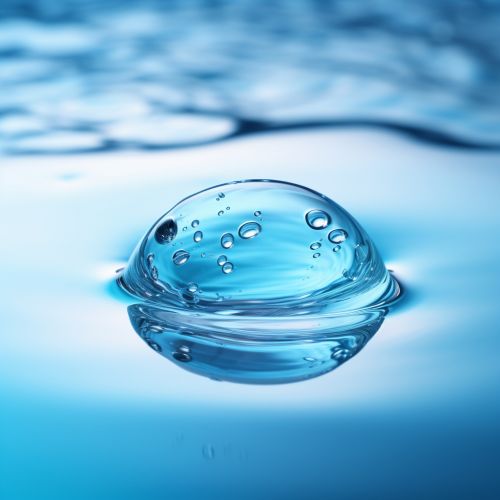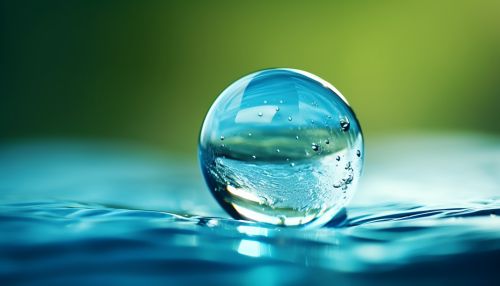Water Metabolism
Introduction
Water metabolism, also known as water balance, is a critical aspect of human physiology that involves the regulation of water levels in the body. It is a complex process that ensures the body maintains an optimal amount of water to function properly. Water metabolism involves various organs and systems, including the kidneys, endocrine system, and nervous system, which work together to balance water intake and output.


Water Intake
Water intake is the process by which the body obtains water. This can occur through various means, including drinking fluids, consuming food with high water content, and metabolic water produced during the metabolic breakdown of nutrients. The body's water needs vary depending on factors such as age, sex, weight, physical activity level, and environmental conditions. The hypothalamus in the brain plays a crucial role in regulating thirst, a primary driver for water intake.
Water Distribution
Once ingested, water is distributed throughout the body's various compartments. These include the intracellular fluid (ICF), which is the fluid within cells, and the extracellular fluid (ECF), which includes the blood plasma and interstitial fluid. The distribution of water is regulated by osmotic and hydrostatic pressures, which are influenced by the concentration of solutes such as electrolytes and proteins.
Water Output
Water output refers to the elimination of water from the body, primarily through urine, sweat, feces, and expired air. The kidneys play a central role in water output by filtering the blood and excreting excess water and waste products in the urine. The amount of water lost through sweat and expired air can increase with physical activity and high environmental temperatures.
Regulation of Water Metabolism
The regulation of water metabolism is a complex process involving various hormones, including antidiuretic hormone (ADH), aldosterone, and atrial natriuretic peptide (ANP). These hormones act on the kidneys and other organs to regulate water balance by adjusting urine output and thirst.
Disorders of Water Metabolism
Disorders of water metabolism can lead to conditions such as dehydration, overhydration, and various electrolyte imbalances. These conditions can have serious health consequences if not promptly addressed. Diagnosis and treatment of these disorders often involve correcting the underlying cause and restoring water balance.
Conclusion
Water metabolism is a vital physiological process that ensures the body maintains an optimal amount of water. Understanding the mechanisms involved in water intake, distribution, output, and regulation can provide insights into the prevention and treatment of disorders related to water metabolism.
